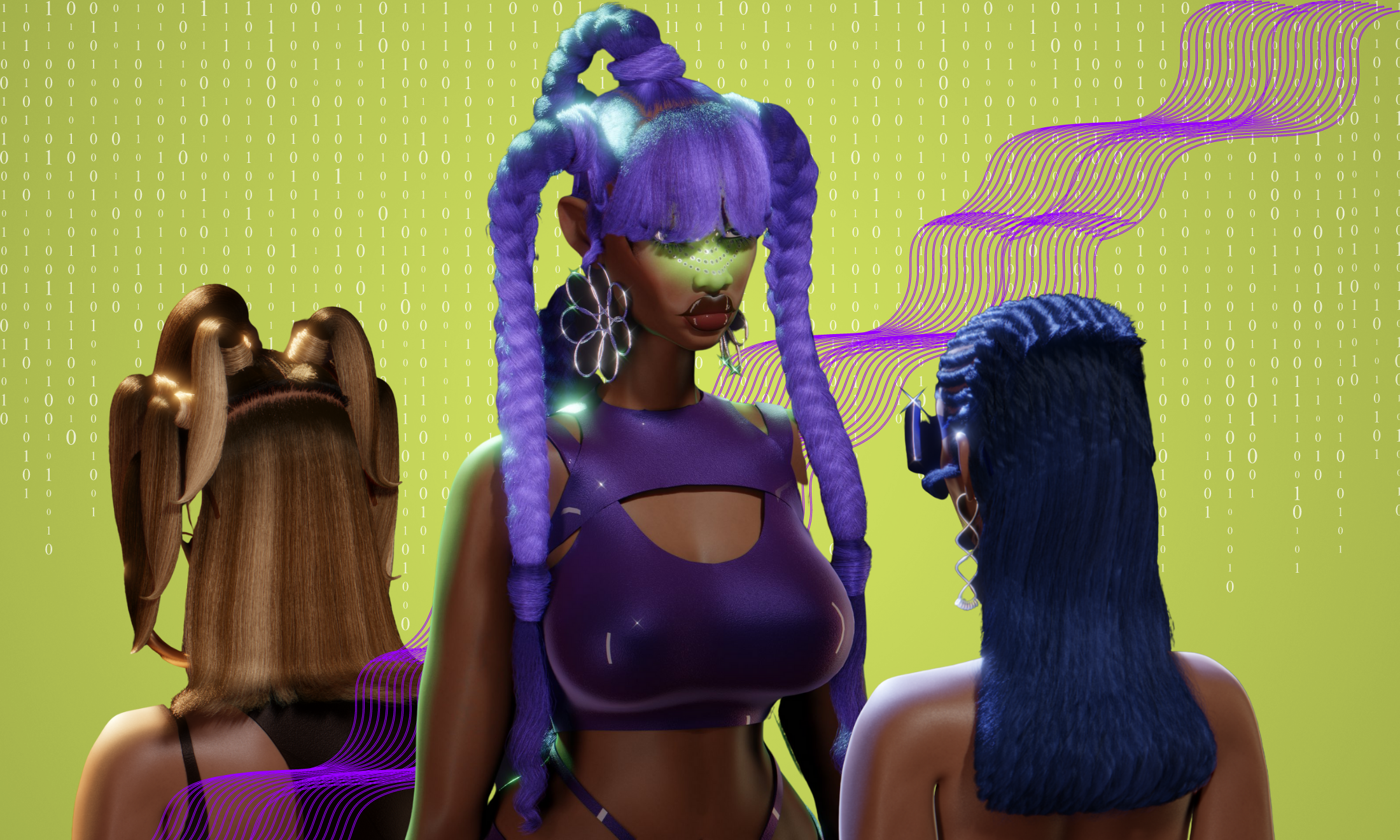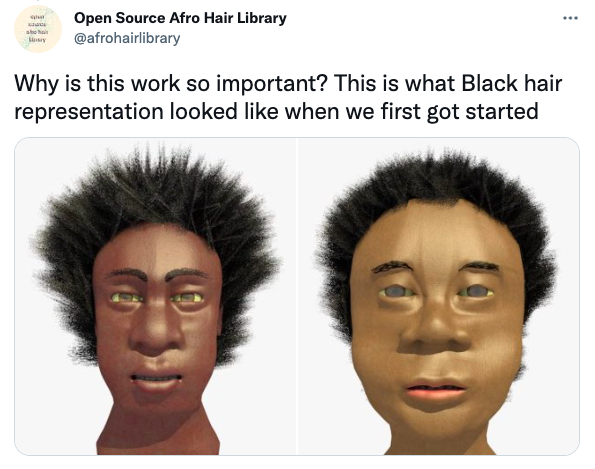The growing community of Black 3D artists creating better afro hair for video games
The Open Source Afro Hair Library is a DIY project paying artists to fix digital bad hair days.
Petiri Ira
24 May 2022

courtesy of the Open Source Afro Hair Library
Video games have come a long way. While graphics mean players can immerse themselves in almost any reality, scenario, and sometimes on different planets there still remains one predictable limitation for the characters: black hairstyles that aren’t ugly, boring, or dated.
Multiple Black gamers have called out games like Outriders and Elden Ring’s lack of Black hair representation in their character customization avatar. But there are Black creators innovating to bring Black culture and identity into the gaming sphere.
In April of 2021, a shooter- RPG hybrid game called Outriders came out and users found that it only featured four Black hairstyles out of twenty-four hairstyles it had in its library. Of those four hairstyles— that were intended to be considered as Black hairstyles— most were a misrepresentation of actual Black hair. The library featured only three poor attempts at afro hair, including grown out locs, that some users felt were cliche
The poor depictions of Black hair in the video game, inspired UC Santa Cruz professor, A.M. Darke to start the Open Source Afro Hair Library. Started and created by UCLA Professor, A.M. Darke, the database of 3D modeled hairstyles means that artists can receive a stipend to contribute Black hairstyles. Set to open during Juneteenth of 2023, the professor created the library as an “anti-capitalist, and feminist approach to the portrayal of Black hair”. The aim is to keep building a bank of usable 3D assets for a range of games, animation, and other digital programming to make us more visible in newer technologies as they grow.
3D environment artist Jovan Wilson tells gal-dem about their pursuit to change the representation of Black hair in the video game realm, through their contributions to the Open-Source Afro Hair Library.
Jovan says it was “a wonderful experience”, to connect with other Black creatives. The design process was a “personal journey” for her as it “emulated the sense of empowerment” within her. That she feels now “from embracing my hair and the power it holds for [her].”
Jovan has personally a collection called ‘Ready Made’ which features creative variations of cornrows and braids.
Games are often one of the tools kids use to feed their imagination. In a Vice-News interview, Jovan mentioned how in 2004 she played a game called Everquest Spinoff Champions of Norrath as a kid and said: It is notable that in these worlds where all realities are possible, where characters can traverse endless landscapes, planets, times and scenarios, what is hard to find is a good 4C texture.”
“I made these styles with the idea that I wanted fierce looks that look ready to face anything,” she explains to gal-dem. “As a kid, I always felt self-conscious about my hair and when my mom would get creative with it. As I grew older I realised that it was such a wonderful thing that I was blessed with hair that is a work of art in so many ways. I created these styles for the little me that couldn’t appreciate the power her hair held.”
Recently the library offered a $2000 stipend for digital designers to contribute tresses and textures that relate to the theme of ‘tonic masculinity’ to widen the number of black men’s styles in the sphere and personalities available in the games. Bringing in Black artists to contribute to the assets seen in games is vital for solid change in the industry that has been dominated by white designers who are overlooking subcultures and nuances in the hair of their characters. From a financial point of view, white people are also the highest-earning players in 2019 featuring gamers Johan Sundstein, grossing $7.2 million, and Kyle Giersdorf earning $3.2 million. The problem is, that the gaming industry neglects to employ Black artists, gamers, and creatives in the workforce or give Black gamers opportunities to enter competitions where they compete equally with their counterparts.
In addition to resources like the Open Source Afro Hair Library, platforms like TheBlackGirlGamers created by Jay-Ann Lopez in 2015 have been established to house safe gaming spaces for Black women. BlackGirlGamers is an inclusive, LGBTQIA+ safe space for Black women to be nurtured and connect with other Black women via internal events and workshops. The foundation partners with brands to change the way society looks at gaming. And over in the US, Latoya Peterson Glow Up Games to increase diverse game narratives for underrepresented groups.
With hungry fans yearning for more realism from their means of escape, there’s hope that black hair might be built into games rather than be an add-on or afterthought.






